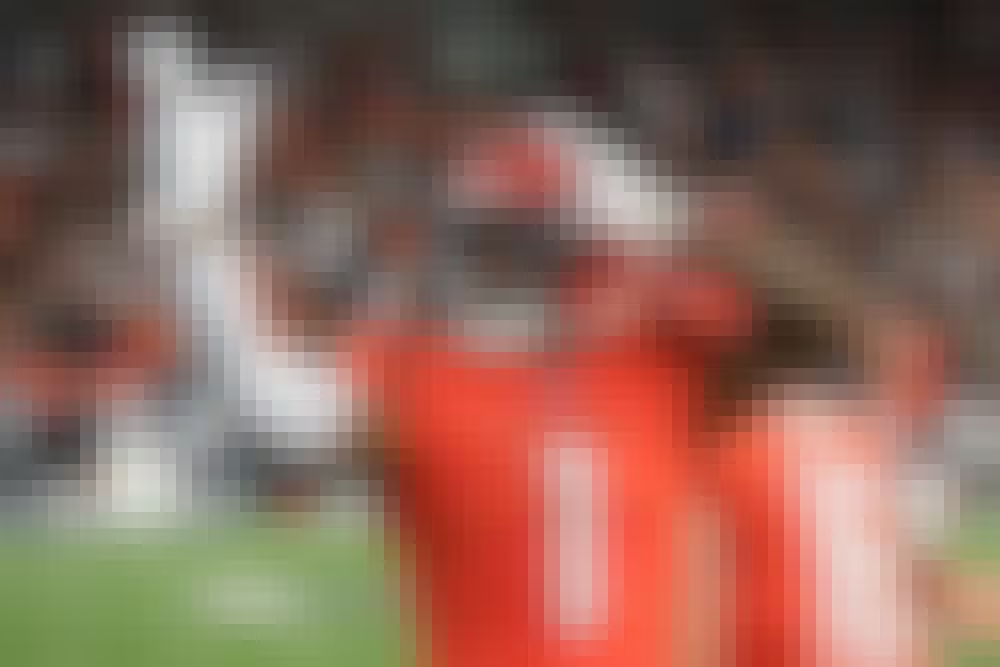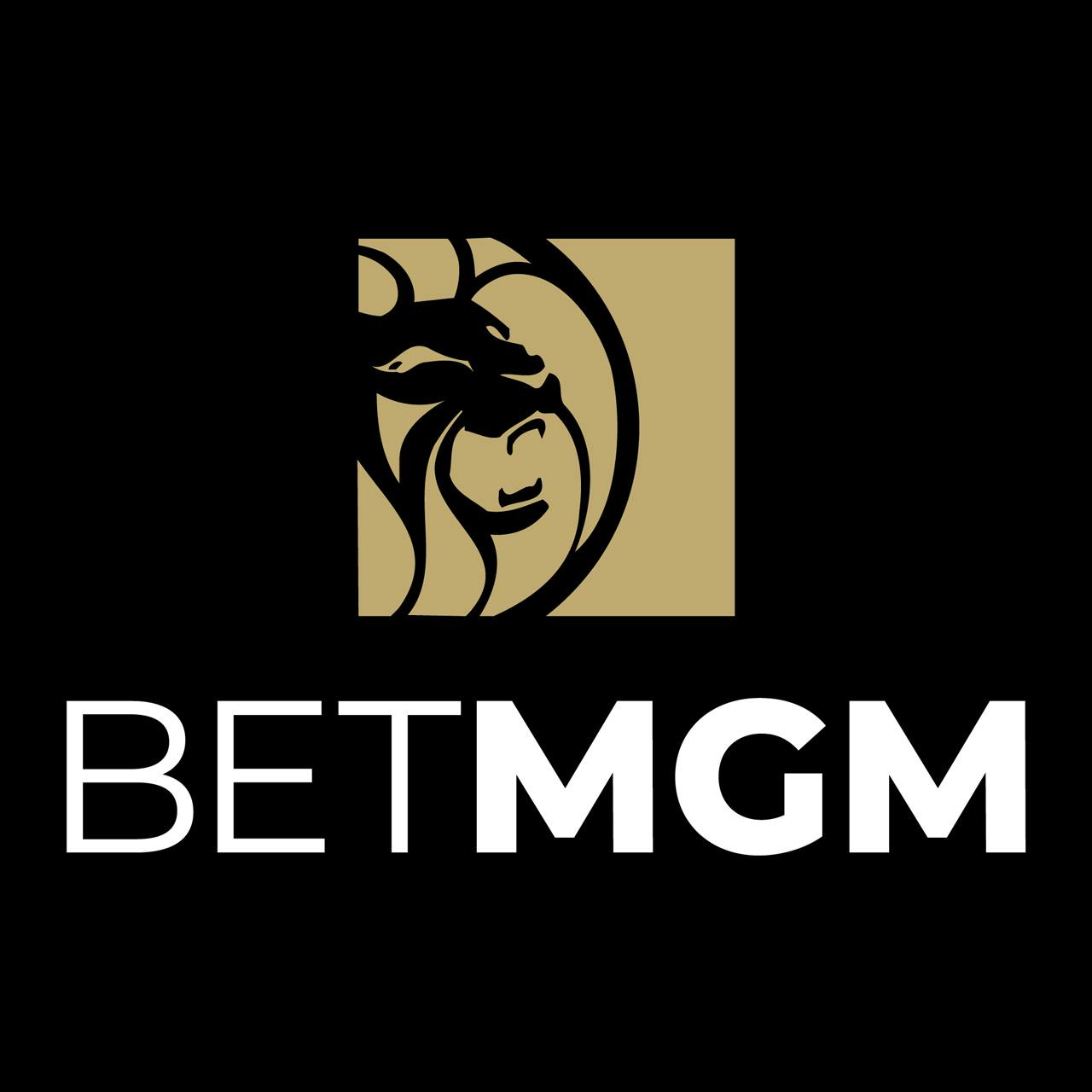How to bet on the Super Bowl

Cincinnati Bengals wide receiver Ja'Marr Chase (1) reacts after getting a first down. (Photo by Ian Johnson/Icon Sportswire)
The Super Bowl is not only the most watched television broadcast in the U.S. It’s also the largest betting event in America.
To get you ready for the NFL championship on Sunday, Feb. 13 at SoFi Stadium in Los Angeles, here is everything you need to know about betting on football, particularly on Super Bowl Sunday.
- How to read the odds board
- What is the moneyline?
- What is the spread?
- What is the over/under?
- What is a futures bet?
- What is a prop bet?
- What is a parlay?
How to read the odds board
It may seem complicated at first glance, but interpreting odds and betting lines is fairly straightforward. If you’re looking to make a bet or two on the Super Bowl, here’s a quick and simple breakdown of how to read the odds board at your favorite sportsbook.
What are the odds?
The odds set by a sportsbook indicate how likely a particular outcome will occur in a specific sporting event. As you can see below, the Cincinnati Bengals are playing the Los Angeles Rams on Sunday in the Super Bowl. On the odds board, you will find the odds that the Bengals will win the matchup and the odds that the Rams will win the matchup.
What does the + and - mean?
The minus sign: The minus sign is associated with the favorite to win a match. The larger the number next to the minus sign, the more likely the favorite is to win. In the example above, the Rams are a -200 favorite to defeat the Bengals.
The plus sign: The plus sign is associated with the underdog in the match. The larger the number next to the plus sign, the less likely the underdog is to win. Betting a heavy underdog can result in a larger payout but also comes with greater risk.
What is the moneyline?
Pick which team you think will win outright.
How much will you win based on the odds?
Betting the underdog: The number next to the plus sign designates how much money you would win if you bet $100. If you were to wager $100 on the Bengals as a +165 underdog, and they won outright, you would win an extra $165. That would net you $265 in return.

Bengals' Super Bowl moneyline
Betting the favorite: The number next to the minus sign designates how much money you need to risk in order to win $100. You must bet $200 in order to earn $100 if the Rams, the -200 favorite, win outright. You would then net $300 in return.
*Note: You do not have to wager $100 on a match. You are free to go well below or above that number. The odds board simply uses the figure of 100 as a basis for establishing the odds.
What is a push?
In the regular season, an NFL game can end in a tie. If the final score is a tie, the bet is called a push, and you get your bet refunded as a result. Since the playoffs must decide a winner, a push is not possible on a moneyline bet. It can occur with a spread bet or total bet, if the spread or total is set at a whole number (example: -4) instead of a half-number (example: -4.5).
What is the spread?
Spread betting is the most popular type of football bet. A spread, or point spread, is a number set by oddsmakers to even the playing field in a matchup. Oddsmakers will pick one team as the favorite and one team as the underdog, then assign a point value based on how many points the favorite should win by.

Super Bowl LVI point spread
The Rams are favored to win by four points against the Bengals. The minus sign indicates the Rams are the favorite, while the plus sign indicates the Bengals are the underdog.
Betting the Bengals to cover: If you bet on Cincinnati, you win your bet if the Bengals either win the game outright or lose by fewer than four points. Another way to say you bet on Cincinnati is to take "Cincinnati plus the points."
A 27-24 Rams victory would win you your bet, because Cincinnati lost the game, but by less than the four-point margin.
Betting the Rams to cover: If you bet on Los Angeles, you win your bet if the Rams cover the spread, meaning they win by more than four points.
Place a pre-match Same Game Combo of $25+ on any NFL game and automatically receive a $10 live Free Bet!
— TwinSpires Sportsbook 💵 (@TS_Sportsbook) January 30, 2022
Opt in now ⤵️ https://t.co/LD2FgkiSXh pic.twitter.com/do3Ke9kW0V
What is the Over/Under?
In a given matchup, oddsmakers set a predicted total, or the combined final score of a game. Based on the projected total, you can bet whether you believe the combined score will be more or less than the amount set by the sportsbook.

Super Bowl LVI Over/Under
Over 49.5: If you believe the Bengals and Rams will combine to score more than 49.5 points, you would bet the Over. Let’s say the final score is 27-24. The two scores added together equal 51, which means the total is more than 49.5, so you win your bet.
Under 49.5: If you believe Bengals and Rams will combine to score fewer than 49.5 points, you would bet the Under. Let’s say the final score is 24-17. The two scores added together equal 41, which means the total is less than 49.5, so you win your bet.
What is a futures bet?
A futures bet is where you wager on the outcome of an event in the future, such as which team will end up the conference or league champion. In the NFL the most common futures bet is which team will win the Super Bowl.
A futures bet can be made well before the beginning of the season. Once the season is underway, you’ll find the odds on each team change week to week, based on performance and record, so betting on a team with longer odds ahead of the season can provide excellent value if they turn out to perform better than expected.
Although the Super Bowl has yet to be played, you can already bet on which team will win the next Super Bowl in 2024 with help from YOUBET. The Chiefs are typically the current favorite at +750.
What is a prop bet?
A prop bet, short for proposition bet, provides odds on whether a specific event will occur within a game or season. For example, in Super Bowl LVI, you can wager on the first team to score or the first team to 20 points.

Super Bowl LVI game props
What is a parlay?
A parlay bet is made by combining two or more bets into one wager. You can do this by stringing together multiple moneyline, spread, or Over/Under bets on one ticket. You must hit each bet in your parlay in order to win, which makes parlay betting much more difficult than a simple moneyline or spread bet. However, with the higher level of difficulty comes a much higher payout.

Super Bowl LVI game parlays
ADVERTISEMENT






